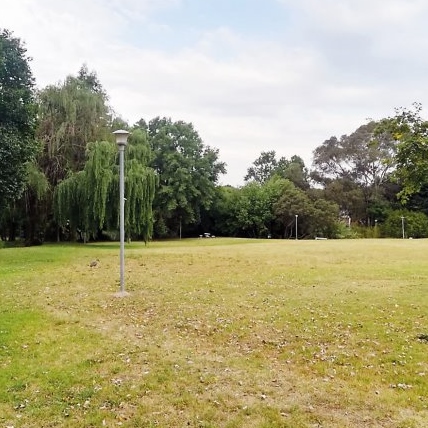
News

Glenhazel park walk helps us to see the Halachic wood for the trees
ILANA STEIN
I’m not talking about the Kruger Park (although that is a walk not to be sneezed at), but rather the park in Glenhazel known as the Japanese Gardens. If you don’t know it, it is a large park just off Northfield Avenue that has a small stream meandering through, flanked on each side by scores of large trees.
The walk was one of the Academy of Jewish Thought and Learning’s latest adventures. Though the academy is about bringing Jewish texts and history into an engaging and adult headspace, it is also about appreciating the world around us, whether natural or cultural. So, it created the Urban Jungle Walk and 15 brave – or just awake – adults and children joined it for a walk through a park in Joburg.
Johannesburg is not a place lauded for its beauty (any Capetonian will tell you this). However, there is beauty wherever you seek it or open your eyes to it. Even in the suburbs, there is much to appreciate. We chose one of the city’s green lungs – in Glenhazel to boot – to make this point. Indeed, everyone realised that it was bigger and had more life in it than they’d realised.
We began by pointing out that within the brachot (blessings) that we say each morning, one thanks G-d for “opening the eyes of the blind”. While this may have other meanings, part of that blessing, so close to the beginning of the day, is to remind us that the beauty of the world is indeed all around us. When we walk to shul or step out for a cuppa on our stoeps, do we take the time to open our eyes and really see?
We opened our eyes, and started to stroll. And once we started looking, we saw that every tree was a different shade of green. We saw a red bishop in the reeds, and palm swifts, doves, and pigeons sailing past above us. We heard the wind in the trees, and yes, we heard the roar of the city beneath it all.
But Johannesburg, with all its noisy “cityness”, is also one of the most tree-filled cities in the world. So, we stood in the shade of a Cyprus tree and discussed the uses of trees and their multiple mentions in the Torah.
Trees are accorded a special place both in narratives and in Halacha, from the first mention of their creation, through to the prohibition of cutting down a fruit tree during a time of war. But, do we ever stop to just appreciate what trees do for us on earth?
Life would be impossible without them, and yet sadly, most of the time we’re too busy to appreciate and enjoy them. In other words, we’re too busy to stop and smell the roses.
So, here’s a challenge for those of us in the urban jungle: step outside your house, take a walk down the road, stand under the leafy shade of a tree, watch a bird flit past, and take a deep breath of that oxygen (made for you by an obliging tree). Open your eyes, and breathe in the world!




